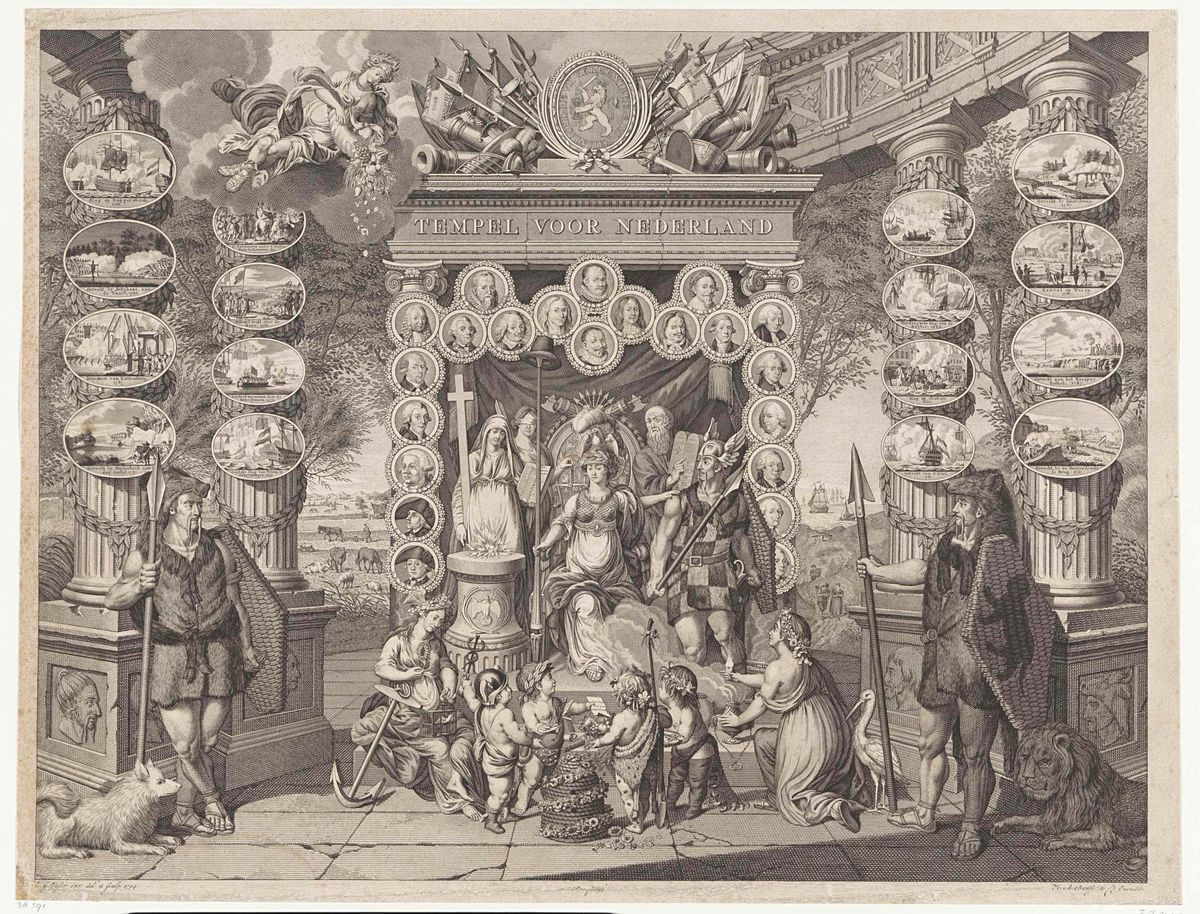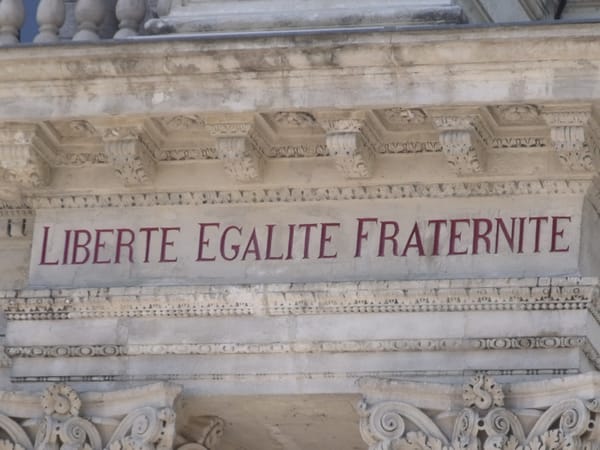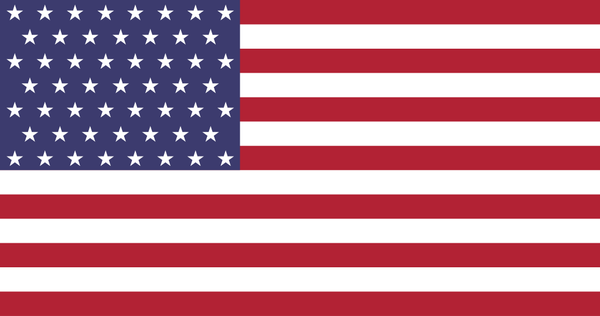Defending Neutrality

Liberals love to tell their creation story. It begins in the 17th century. Liberalism arose from the political competition between Catholics and Protestants in Western Europe. Pre-liberal and liberal philosophers fought to end religious wars, and they defended religious toleration as a moral principle. Prominent figures include Pierre Bayle, Roger Williams, Baruch Spinoza, and John Locke.
In truth, these figures’ views did not impact real institutions for a long time. Religious toleration arose from political necessity rather than political principle. But as time wore on, most nations came to see religious toleration as a matter of human rights.
Liberal neutrality, then, grew out of doctrines of religious neutrality. We at first said that states should not take sides on matters of faith. Or at least not matters of faith disputed within Western polities. Since the end of WWII, the right to religious freedom has received global recognition, and many democratic regimes have adopted and honored those protections even if they have established churches.
Some liberal philosophers and legal scholars now apply neutrality to non-religious doctrines. They discourage governments from taking sides in contentious religious and moral disputes. One might argue John Stuart Mill has a version of it as an implication of his harm principle. But liberal neutrality spread to the public owing to novel points of disagreement. Many such disputes flow from the sexual revolution. The list is long: contraception, abortion, women’s rights, interracial marriage, no-fault divorce, sex outside of marriage, pornography, LGBT relationships, and so on.
Liberals recommend neutrality to avoid resolving disputes that seem unresolvable. The alternative is for the state to use coercion to boost one side over the other. But this is a recipe for conflict and oppression, or so the liberal claims. Neutrality is a strategy for creating social peace in ways that respect human dignity.
Liberal neutrality despised
But today liberalism is taking a beating. The central liberal doctrine under assault is the ideal of liberal neutrality. We can now articulate it as the claim that the state should not use its coercive powers to advance values held by only part of the population. A neutral state, for instance, does not use coercion to favor one religion over others.
Why is this doctrine under attack? Many regard it as mere propaganda. Liberals use neutrality to rationalize their grip on power. Then they promote their sectarian ends at the expense of others. Liberals claim that liberal values like autonomy are neutral. But that’s only a liberal deception.
Sometimes anti-neutralists go further. Liberals are bad neutralists because no one can be neutral.
Here I see three objections.
- Liberal neutrality is incoherent. The ideal entails a contradiction or is self-refuting. The slogan: “Nothing is neutral.”
- Liberal neutrality is infeasible. The idea of a neutral regime is coherent. But someone will rule and use political power to promote contestable objectives.
- Liberal neutrality is unattractive. The ideal is coherent and workable, but we shouldn’t be neutralists anyway. State power should promote correct values, no matter whether they’re neutral.
In my experience, anti-neutralists focus on the first two claims. If liberal neutrality is coherent and workable, it looks attractive. We agree that people have the same rights regardless of race, sex, and nationality, and people also have the same rights irrespective of their religious faith. The state should be neutral, for instance, between Christians and Jews. That’s basic justice.
In this essay, I define and defend liberal neutrality.
Liberal neutrality defined
Political philosophers have long debated about neutrality, but it remains ambiguous. Some think that the state should be neutral between views. Others claim that the state should have neutral aims. A few even argue that policies should have neutral effects. But these different claims all miss something. What matters is neutrality between persons because persons have central moral importance.
Let’s say that a law is neutral between two people when it fits both perspectives. The state should not restrict a Jew’s liberty to deny that Muhammad is God’s prophet. Nor should it restrict a Muslim’s liberty to disagree. A law banning pork would be neutral between Jews and Muslims because Judaism and Islam forbid eating pork.
Liberal neutrality defended
Why should anybody believe in this ideal? Imagine you’re in a challenging marriage. You disagree with your spouse about everything: how to raise the kids, spend money, and so on. Imagine that, despite all your efforts, you can’t agree. But you don’t want a divorce because your life together is special. Divorce would be messy and expensive, and neither of you would be happier. So you decide to see a marriage therapist.
The therapist helps you see that your marital disputes aren’t going anywhere. She says that you must find ways to live together before conflict destroys your marriage and depletes your shared love. The therapist offers compromises. Neither of you likes her suggestions, but you admit that they will heal your pain. You’re disappointed. You mourn the marriage you dreamed of, but you continue to love your spouse.
Like you, the marriage therapist is another human being and has her own concerns. She has probably taken sides privately. But she distances herself from her personal view so that she can do her job. The therapist’s job is still coherent and feasible. She draws on the human capacity to take the perspective of others to bring you two together. Therapists are not alone. If you live with other people, you take other views all the time, if you’re a decent person. In a fight, even if you think you are right, you frequently yield to others to sustain the relationship. It is not easy to get along with other humans, and we often fail. But it is still appropriate and even inspiring to try.
The ideal of liberal neutrality expands this logic to the exercise of state power. The liberal state is not a therapist, of course. But it preserves functioning relationships between citizens and between the public and the state and prevents conflicts from erupting into violence. To do so, political officials do not take sides between our competing moral visions. At least within limits.
Anti-neutralists pounce on these “limits.” They argue that the liberal state cannot establish universal neutrality. They then point to absurd cases, like tolerating Nazis. The next step in their argument is to show that attempts to specify intuitive limits will fail. Their favorite example is John Rawls’s idea of the reasonable, which they savage.
So anti-neutralists argue from the outside-in. They start with the extreme case and infer that neutrality is infeasible.1 Let’s proceed the other way around and argue from the inside out. I start with an easy case and then expand.
Liberal neutrality writ small: Jews and Christians
The United States is pretty good at treating Jews and Christians as equals. We’ve been awful in the past, but we do a better job than almost anyone. Jewish immigrants have flocked to the United States for decades for this reason. Most of us take pride in the fact that Jewish people feel safe in our country. We would never restrict their religious freedom.
We insist that our government do likewise. Jews and Christians must have equal freedom. But notice the gravity of our demand. We tell the government not to decide whether Jesus Christ is divine, and the state must not coerce people based on whether God became man. Yet Christian-Jewish neutrality is coherent, workable, and just.
Even arch anti-liberals agree with this minimal neutrality. Take Catholic integralists, who insist that Catholicism be the religion of the state. Yet they embrace radical restrictions on religious coercion. In 1965, the Catholic Church promulgated Dignitatis Humanae (DH), which clarifies Catholicism’s stance on religious liberty. The standard reading prohibits all religious coercion. Integralists interpret DH as protecting the religious freedom of the unbaptized.
Unbaptized people with diverse faiths may raise their children in that faith. They may build and run their religious institutions and merit equal treatment before the law, and no state may discriminate against them based on religion.
For the integralist, religious freedom rests in God’s jurisdiction over religion. The right to religious liberty is supernatural, and it transcends all worldly authority. Could liberal neutrality be divine?
Liberal neutrality expanded: other faiths and doctrines
We can expand from here. Even a Catholic integralist state protects religious liberty for non-Catholics. Integralist states act neutrally by safeguarding religious freedom. Of course, integralists insist that governments become Catholic, which violates the principle of non-establishment. But even their state only restricts the religious liberty of baptized Christians. On the other side, American liberals often forget an important historical fact. Globally, liberals usually tolerate toothless establishments (think of the Anglican Church). What matters is protecting the free exercise of religion. Even strident anti-liberals thus advocate considerable religious neutrality. This point isn’t even controversial among integralists, despite their endless attacks on liberal neutralism.
Neutrality has many moral foundations, like human dignity and the common good. But my argument is that a non-neutral state degrades relationships within the polity. The neutral state fosters solidarity between people with diverse views.
Return to the therapist analogy for a moment. Suppose that during one session, your therapist takes your side, finally. Within the moment, you may find it satisfying to have your therapist expose your partner for who he is. But that dark pleasure dissipates and harms the relationship in the long run. By taking your side, the therapist discounts your partner’s perspective. He may feel ganged up on. Sadly, you will not grow closer together, when that was why you went to therapy in the first place. The relationship will stall or die. Solidarity erodes.
Let’s push. States can be neutral about the divinity of Jesus, and if so, they can be neutral on other religious questions. Indeed, they can be neutral about some moral questions.
Some theorists distinguish between protecting religious freedom and “moral” freedom. But law and religion scholars increasingly agree that such a distinction is untenable. Philosophers agree too. Religious belief includes moral commitments, and morality speaks to ultimate matters that are usually the province of religion.
Consider two related examples: disagreements about contraception and same-sex relationships. Conservatives often argue that natural law forbids contraception and same-sex intimacy, but they convinced few people. Why?
They defended natural family planning. And they attacked birth control. The distinction between the two proved elusive. They allowed sex between infertile couples and criticized same-sex sex. But that distinction also proved elusive.
If we can reasonably disagree about Jesus, we can disagree about these distinctions. The state should remain neutral here too.
We are a fractious species; our reasoning is diverse and limited. James Madison said, “Liberty is to faction what air is to fire.” That truth permeates social life, from the family to the nation. Without revelation (and sometimes with it), the free use of reason produces disagreement. To preserve moral relations between us, our government must not take sides. All must have equal freedom.
Anti-neutralists love to contrast substantive moral claims with thin liberal decision procedures. Society should commit to the full range of values, and it cannot rely on anemic procedures to resolve disputes. But notice that my rationale for neutrality is neither anemic nor procedural. Liberal neutrality rests on substantive moral goods: moral relations between diverse persons. A fulfilling relationship involves taking the other person’s perspective in deciding how to act. That is not value-neutral because these relations have spectacular moral value and make our lives worth living. The same goes for our political relations.
At this level of generality, even the integralist can agree. She may seek to legislate natural law, say by banning pornography. She dreams of a Catholic establishment and seeks power over the baptized. These aims violate liberal neutrality. But she still refuses to suppress religions incompatible with Christianity, because dogma forbids it.
The integralist will allow integralist states to share policies with liberal states. But she will insist that the integralist state acts for different reasons. This reply mistakenly equates neutrality with neutral aims. What matters is how the state acts, not why it acts. States are agglomerations of diverse interest groups, and they lack collective intentions. Following liberal philosopher Jerry Gaus, the proper notion of neutrality requires only that law is mutually justifiable. In Gaus’s sense, the integralist is a quasi-neutralist about religion.
Liberal neutrality limited
Liberal neutralists struggle to set plausible bounds on neutrality. No one thinks we should tolerate all creeds, and Nazi views are out of bounds. But why? Why are some opinions in and others out?
Some liberals use “reasonableness” to draw these boundaries. The state should be neutral between reasonable people with reasonable views but not unreasonable people with unreasonable views. The trouble with the idea of the reasonable is that it always seems to include a narrow band of liberals. The concept looks like a cheat, and it has become a joke.
As found in the philosophy of John Rawls, the original idea had two components. You must first recognize that moral reasoning faces many challenges that lead sincere and reflective people to disagree. Second, you must always and only propose reciprocal terms of cooperation and only propose rules of social life that bind everyone.
But Rawls discredited himself by misapplying his standard. He dismissed libertarian views as unreasonable out of hand. He approached conservative religious beliefs with more care, but he proved hypocritical even here.
I find the idea of the reasonable is more trouble than it is worth. We do better if we follow Gaus instead. Gaus distinguishes between moral views held culpably and inculpably. Moral relationships involve relations of accountability. To sustain friendships, we must hold each other accountable for mistakes. But holding others accountable only makes sense when others can grasp the rules we hold them to. If they cannot grasp the rules, they do not know better than to violate them. We cannot even say they should have known better.
Consider the Amish as an example. Much of my wife’s family lives in Amish country, and we often visit for Christmas. Driving in farm country is slow sometimes because I often find myself stuck behind horses and buggies. The buggies consist of paper-thin wood, painted a simple black. They have far too many people packed inside. And the buggies have no lights, only flashing reflectors.
If I didn’t know who the Amish were, I’d be indignant. Why are these people so unsafe? But once you learn what the Amish believe, you recognize that blaming them doesn’t make sense. To blame them would be to browbeat and manipulate them. They grew up in the Amish community. They have deep-set beliefs. They don’t know better than to drive a horse and buggy down busy roads. It isn’t even true that they should know better. They lack access to the reasons that make them guilty for acting as they do.
If I have an Amish friend, his beliefs prevent me from holding him accountable. Nor may I use the law to punish him for living out his values. To honor the Amish, I must respect and protect their religious freedom.
Anti-neutralists seldom complain about the Amish. Indeed, the examples they use against liberal neutralism have culpably false beliefs. We find fault with Nazis for having bad values, and they know better than to act as they do. Or they should. The same goes for racists and other bigots.
I then face a common objection: what if Nazis held their beliefs conscientiously? Must we respect those beliefs then? To answer that question, we must ask how they live out their values. If they undermine moral relations through manipulation and violence, we stop them. We must protect our relationships with others. But if Nazis refrain from such actions (making them inconsistent Nazis), we must tolerate them. We tolerate people with monstrous beliefs all the time. But we limit their capacity to undermine relationships with others. The closer they come to power, the fewer liberties they have.
Drawing the moral circle through moral culpability avoids Rawlsian hypocrisy. The circle of moral concern includes many diverse human beings, including many non-liberals.
The set of those Gaus includes is far broader than those Rawls includes. Gaus accepts incredible diversity and includes many non-liberals. But to have fulfilling relationships, we must respect perspectives besides our own.
Let’s return to Jews and Christians. I think Christianity is true. But if I demand that my Jewish friends convert because I see Reason, our friendships will end. I cannot hold my Jewish friends accountable for their beliefs. Our disagreements are complex, rich, and long-standing, and my demands must respect their traditions. For much the same reason, I would never call on the state to punish my atheist friends them their atheist beliefs.
Liberal neutrality, then, is not secular but post-secular. A secularist regime à la French laïcité is as non-neutral as a religious regime. Liberal neutrality must not elevate secular perspectives over religious ones. A post-secular approach makes state coercion hard to justify, though that does not make the state libertarian. (Libertarianism is another sectarian view.) But the state will tilt in a liberal direction, not due to a prior liberal commitment but to fulfilling relationships with others. Liberals have all too often confused neutrality with secularism, and they have earned some of the scorn they receive.
But that isn’t intrinsic to liberal constitutional order, and the US constitutional order is not secular. We have significant differences with France, for example.
Liberal neutrality exists
I am told that my liberalism is a fairy tale. Anti-liberals grapple with really-existing liberalism, not the liberalism of the graduate seminar. Anti-liberals often claim unique insight into “liberalism” as a social force. Yet they seldom tell you what kind of thing liberalism is. Is liberalism a philosophy? No. Is it an ideology? They rarely use that term. Some anti-liberals call liberalism a “socio-political regime.” I know what a political regime is. But what is a social regime? It must be a collective of norms and ideals. But then, let’s distinguish between types of norms and ideals. Then we can develop a subtler analysis. So I struggle to understand liberalism’s new critics. I don’t know what sort of thing they oppose.
We cannot allow anti-liberals to portray themselves as hard-nosed realists. Their concrete proposals are often justifiable from many perspectives, whereas other ideas, like a Catholic monarchy, invite overwhelming opposition. When they propose a distinctive policy position, I’m all ears. And when they tell us what liberalism is, I’m ready to engage.
I respect the claim that the ideal of liberal neutrality is infeasible. But people maintained for centuries that allowing religious pluralism would destroy social unity, and they were wrong. We can extend neutrality beyond religion, even to political ideology itself, and people may one day treat ideological bigotry like religious bigotry. We have a great measure of religious neutrality and some moral neutrality. We can have more.
Liberal neutrality inspires
Liberalism does not forgo robust moral claims. A rich social morality justifies a neutral state. We all embrace some degree of religious neutrality, even integralists. We all want a society that treats Jews and Christians as equals by according them equal liberty. (Even if we support more innocuous and non-coercive religious establishment. An example might be placing “In God We Trust” on coins.)
A society where Christians restrict Jewish liberty undermines Jewish dignity and damages the common good—such a society undermines friendship and solidarity. We agree on that much. But the logic of neutrality expands to other faiths and non-religious doctrines.
The boundary of neutrality ends at the edge of moral personality and culpable belief. That means liberal neutrality is a far-reaching doctrine. It raises the question of what the state may do. But that commitment derives from rich moral values. Liberal neutrality helps sustain friendship and trust in our diverse but shared polity. That’s a rich and noble vision.
- See Gene Callahan’s recent piece. He develops the standard dilemma for liberal neutralism. Either neutrality includes evil creeds or it draws arbitrary lines between acceptable and unacceptable views. I take my main argument here to answer the dilemma.




